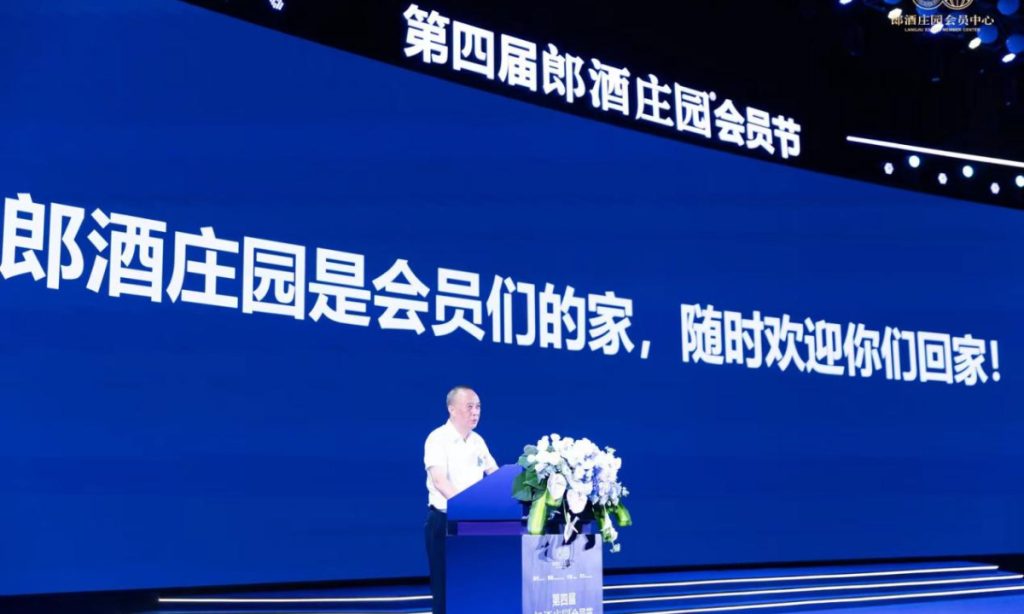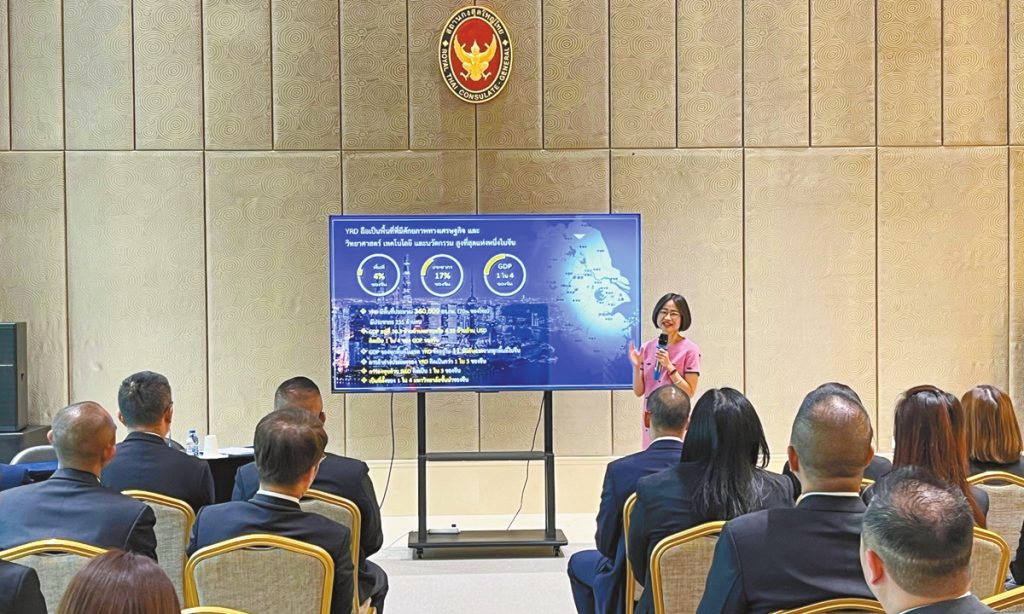Going global! Langjiu partners with Pernod Ricard to expand the ‘circle of friends’ for members

"Welcome home!"
On August 22, at the Langjiu Estate by the Chishui River, Chairman Wang Junlin warmly greeted attendees, heralding another grand gathering for Langjiu members.
This festival is crafted by Langjiu to fulfill consumer aspirations, dedicated to its extensive membership.
Hundreds of Langjiu members from across China were invited to convene at the Langjiu Estate, where they partook in a premier intellectual feast.
Professor Zhou Qiren of Peking University, a renowned economist, presented "Breaking Through in Business: Cognition First," discussing how companies can transcend economic cycles and avoid growth pitfalls.
As the host, Langjiu had exciting news for its members on-site:
With immediate effect, Langjiu said it will partner with Pernod Ricard, a global leader in spirits and wines, boasting esteemed estates like Martell and Royal Salute, to establish the World Winery Alliance. This initiative will deepen collaboration and foster development under a global framework.
During a panel discussion with Ji Keliang, former chairman of Guizhou Moutai Group, Ma Yong, vice president of the China Food Industry Association, Guo Binchen, CEO of Pernod Ricard China, and Ding Jiachuan, managing director and Global Partner of Boston Consulting Group, Wang Junlin was asked what this partnership would bring to Langjiu members. He responded with a smile, and said he hopes to take Langjiu members to visit various Pernod Ricard wineries around the world next year.
Following this, the big screen displayed a montage of the past seven years, showcasing the development of the Langjiu membership system. It highlighted the company's commitment to the philosophy "The customer is supreme, serving a beautiful life," illustrating its shared growth with members.
Amid applause, representatives of long-standing members who had accompanied Langjiu's growth for seven consecutive years, including Vice Chairman Chen Genping of Sichuan Xingrui Health Industry Group, Chairman Hu Haiqing of Luohe Hairun Food Co, Ltd, and Chairman Yang Jingcong of Qingdao Guangrunchuan Industrial & Trade Co, Ltd, among 17 others, were invited on stage. They were personally awarded the Membership Honor Medals by Langjiu Group's Vice Chairman Fu Rao and General Manager Wang Bowei, elevating the event's atmosphere to a climax. This ceremony marks the highest accolade given at the Langjiu Estate Members' Festival since its inception in 2021, and it certainly sets a new benchmark for Langjiu's "ultimate service."
Over the next two months, the fourth Langjiu Estate Members' Festival will continue with sub-events in 12 major cities including Nanjing, Shenzhen, Chengdu, and Dalian, facilitating face-to-face interactions with tens of thousands of members nationwide.
Holding an annual Members' Festival, where renowned experts and scholars are invited to share insights and wisdom, is just one of Langjiu's focused initiatives to empower its members.
Adhering to the principles of "service, empowerment, value, and symbiosis," Langjiu has over the years built numerous bridges of value connection for its members, enhancing the ultimate membership experience through various channels including culture, sports, and tourism.
In the realm of culture, Langjiu established strategic partnerships with prestigious academic institutions such as Cheung Kong Graduate School of Business, CEIBS, and Tsinghua University's EMBA program, as well as various chambers of commerce. It also regularly organizes events like entrepreneur forums and introduces fine liquors to renowned companies. In November 2023, Langjiu even constructed the Cheung Kong GSB Sidu Chishui Teaching Center at the Langjiu Estate, providing an excellent educational environment and facilities for the business school students, empowering enterprises with the spirit of Sidu Chishui.
In sports, after more than a decade of development, Langjiu has successfully established two major golf tournament systems: the Hongyun Lang Cup for top Chinese universities and the Qinghua Lang Cup Golf Tour. These events attract thousands of participants annually.
The creation of elite communication platforms has significantly enhanced Langjiu's influence among Chinese entrepreneurs, attracting an increasing number of members to the brand.
According to statistics, before the first Langjiu Members' Festival in 2021, the precursor to Langjiu's membership system, "Qinghua Hui," had already reached over 220 cities nationwide in three years. Through more than 1,000 high-end dinners and over 4,000 Qinghua dinners, it connected more than 20,000 members, facilitating 700,000 instances of high-frequency interactive communication.
Create value with valuable people, in valuable places.
Following the 2021 upgrade of Qinghua Hui, with the activation of the Langjiu Estate Membership Center, Langjiu enriched its elite social networking system for members through events like the Tri-Product Festival (focusing on Quality, Brand, and Taste), the Ceramic Art Festival, and the Qinghua Lang · China TOP20+ Club Development Forum, all hosted at the Langjiu Estate.
Renowned individuals have been invited to experience the Langjiu Estate, becoming key contributors to the gathering and creation of value at Langjiu.
Today, Langjiu Estate welcomes nearly a thousand members daily from across the country, including entrepreneurs, business elites, distributors, and partners from various sectors. Taking photos at Shilixiang Square, experiencing historical shifts at Tianbao Cave, or learning to blend their own signature sauce-flavored Langjiu … Being invited to board a chartered flight to visit Langjiu Estate has become a symbol of prestigious status.
Pernod Ricard China CEO, Guo Binchen, who attended the Members' Festival, was full of praise for Langjiu's various practices in empowering its members. During the roundtable discussions, he repeatedly mentioned the need to "observe and learn." In his view, superior quality is the foundation of any liquor company, but a rich experience is also a crucial aspect that modern consumers highly value. Creating one memorable gathering after another is a shared pursuit of both Pernod Ricard and Langjiu.
"Pernod Ricard is willing to direct its spirits enthusiasts to the Langjiu Estate. For Langjiu's members, Pernod Ricard, with its more than 40 world-class wineries around the globe, can open another window to a different kind of splendor," said Guo Binchen.
As these two leading liquor companies from China and abroad join hands, Langjiu's members can look forward to welcoming new friends into their social circles.


